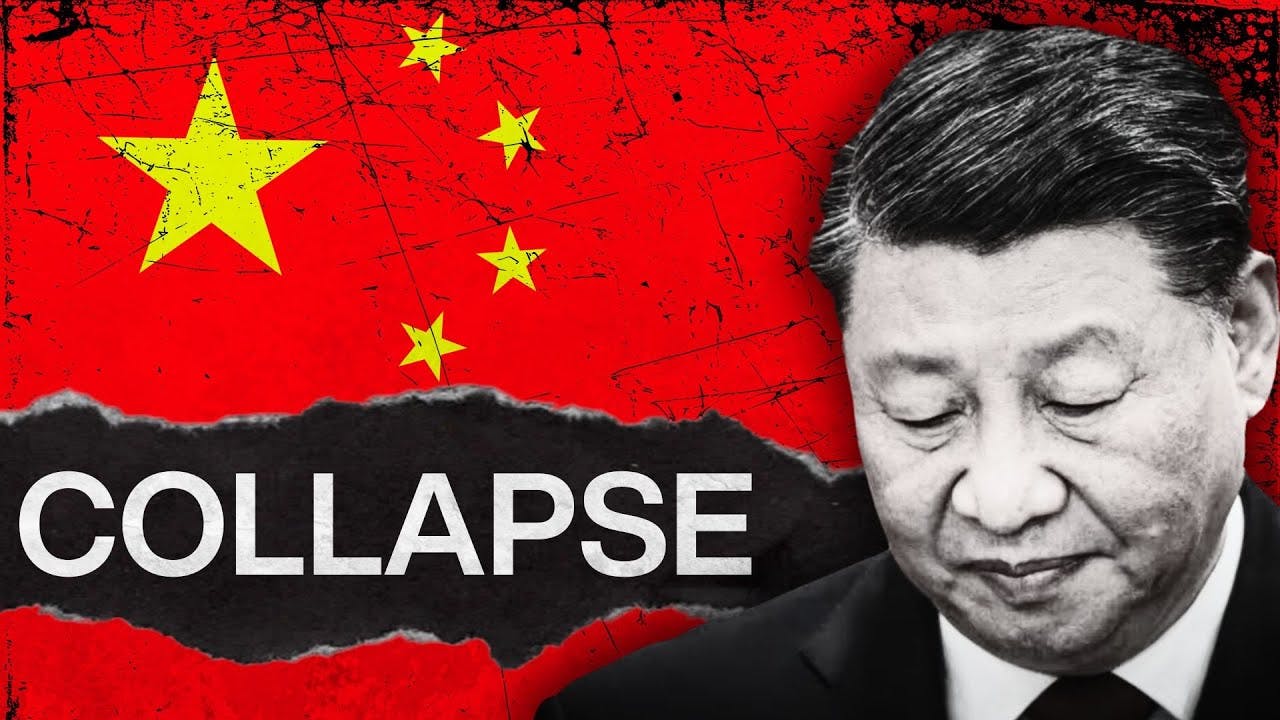The Real Reason China’s Economy Is In Crisis
()

INTRO (00:00:00)
- China's economy is facing a spiraling debt crisis and deflation, threatening its 45 years of economic growth.
- The situation is a result of compounding policy decisions, disease spread, market euphoria, lies, and mistakes.
45 YEARS OF GROWTH (00:01:16)
- China's economic growth began after Deng Xiaoping introduced sweeping economic reforms in 1978.
- Special economic zones were created, allowing market capitalism to thrive in cities like Shenzhen.
- China experienced impressive economic growth under leaders Jiang Zemin and Hu Jintao, becoming the world's second-largest economy in 2011.
- Xi Jinping took control in 2012 and initially pursued market reforms, reducing poverty significantly.
- However, since 2017, Xi Jinping has reversed some reforms, increasing state control over markets.
STATE OWNED ENTERPRISE (00:04:17)
- State-owned enterprises (SOEs) play a significant role in China's economy.
- In 2017, China had more SOEs than any other country in the world.
- In 2019, over 60% of China's market cap was from SOEs.
- In 2020, 40% of China's GDP came from SOEs.
- SOEs contribute to some of the economic problems China faces today.
CRISIS AFTER CRISIS (00:05:05)
- China has faced multiple crises, including a collapsing job market due to excessive COVID policies, a real estate market collapse, and a loss of over $6 trillion in public companies.
- These events are not random but result from critical policy decisions, market speculation, and greed.
- China's economy is heading towards a significant debt crisis and potential stagnation.
- China's GDP growth fell from 6% in 2019 to 2.2% in 2020 due to the COVID-19 pandemic.
- Despite negative growth in other countries like the US, China managed to grow by increasing investments, mainly through state-owned enterprises, offsetting the decline in personal consumption.
- This growth was achieved through significant debt accumulation, which will be crucial in understanding China's current debt crisis and hidden economic problems.
- In 2021, China saw a GDP growth of 8.4%, but the resurgence of COVID-19 led to the implementation of the zero-COVID policy, causing economic growth to drop to 3%.
- The zero-COVID policy severely impacted China's economy, leading to the shutdown of the country and reduced economic growth.
- Many foreign companies closed their China-based operations and laid off workers, with a significant number of foreign-invested enterprises exiting the country.
- China experienced one of the worst real estate collapses in history, starting in the mid-1990s with the rise of the middle class and increased demand for housing.
- A new property developer model allowed developers to sell apartments before completion, leading to rapid growth and debt accumulation for companies like Evergrande.
- In 2021, Evergrande, the second-largest property developer in China, defaulted on its debts, owing $35 billion to Chinese banks and foreign investors.
- The property market collapse has affected the wealth of Chinese citizens and represents a significant portion of the country's economy.
- Chinese and Hong Kong stocks have lost a total of $6.3 trillion since their peak in 2021, with Tokyo surpassing Shanghai as Asia's largest equity market.
- The real estate market troubles and rising political tensions between the US and China are key reasons for investors pulling out of equity markets.
HIDDEN DEBT CRISIS (00:10:29)
- China's GDP growth in 2023 was 5.2%, but this figure may be misleading.
- China has a large amount of official government debt and trillions of dollars in hidden debts.
- Local governments in China use financing vehicles to sidestep budget caps and take on more debt.
- The total liabilities of these financing vehicles are estimated to be 11.3 trillion in 2022.
- China's total debt to GDP is estimated to be almost 300%.
- About a third of these financing vehicles were unprofitable in 2022.
- China's economic growth is being driven by debt-funded government investment, which is hurting productivity.
- The GDP return per Chinese Yuan of additional debt has been declining for years.
- Two-thirds of corporate debt in China is held by state-owned enterprises, many of which are unprofitable and inefficient.